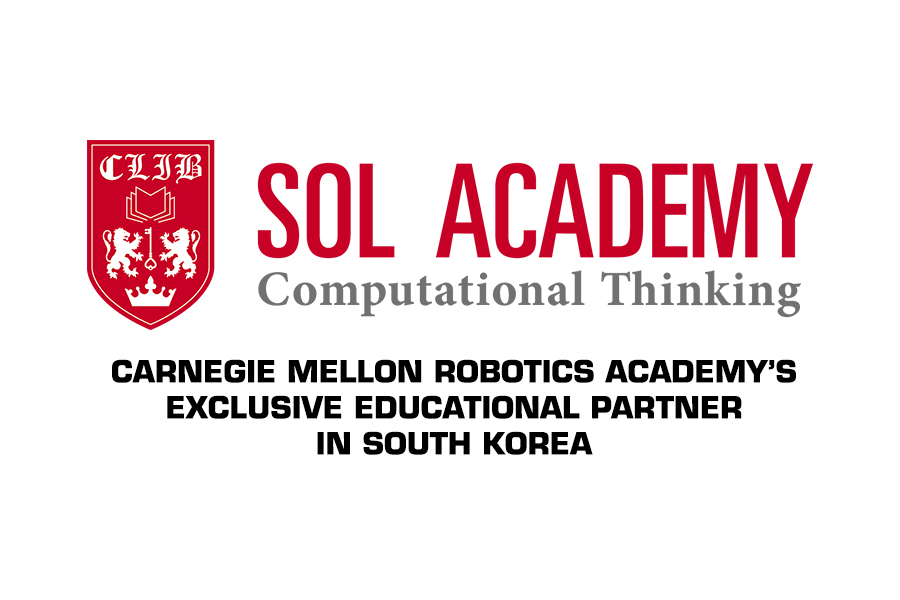
NREC’s Carnegie Mellon Robotics Academy (CMRA) partners with South Korea’s Sol Academy to teach STEM and computational thinking to students ages 10 to16.
The National Robotics Engineering Center (NREC) of Carnegie Mellon University (CMU) has signed an agreement with South Korea’s Sol Academy enabling the academy to offer Carnegie Mellon Robotics Academy (CMRA) curricula and certifications through CMU’s CS-STEM Network.
Sol Academy, an afterschool educational provider, is launching a robotics education program to teach students ages 10 to 16. The CMRA materials are based on more than 10 years of research on the use of educational robots to teach students about such topics as programming, computational thinking, and mathematics.
As the exclusive CMRA educational partner in South Korea, Sol Academy will be the only educational provider able to offer CMRA teacher and student certifications in the region. To launch the program, educators from Sol Academy studied with the CMRA to become Master Trainers on educational robotics systems, programming, and pedagogy. These Master Trainers are empowered to train instructors in South Korea, who will prepare for CMRA Teacher Certification through the CS-STEM Network (CS2N.org).
Once certified, the instructors will be equipped to successfully lead robotics classes at Sol Academy. Students who successfully complete their classes also can earn a CMRA certification. Both Master Trainers and Certified Instructors will be required to renew their certification every two years. This allows them to learn the latest best practices in robotics education and take advantage of the latest materials developed by CMRA.
“We are excited to partner with Sol Academy to help them build an educated pipeline of teachers who can empower students to be part of tomorrow’s STEM workforce,” said Dr. Herman Herman, director of NREC. “In a period of such extreme growth for robotics, it is vital for schools to make computational thinking a priority.”
Sol Academy President, Thomas Song, knows the importance of STEM. “The goal of this partnership is to enable our faculty to incorporate robotics curriculum into their courses, and to encourage students to embrace STEM education,” says Song. “It’s more important than ever for our youth to be equipped with the knowledge and skills to solve tough problems, gather and evaluate evidence, and make sense of information.”
The Carnegie Mellon Robotics Academy studies how teachers can best use robots in classrooms to teach Computer Science, Science, Technology Engineering, and Mathematics (CS-STEM).
“Our mission is to use the motivational effects of robotics to excite students about science and technology,” said VuNguyen, lead software engineer at CMRA.“We want to enable all teachers to take advantage of the lessons we develop.”